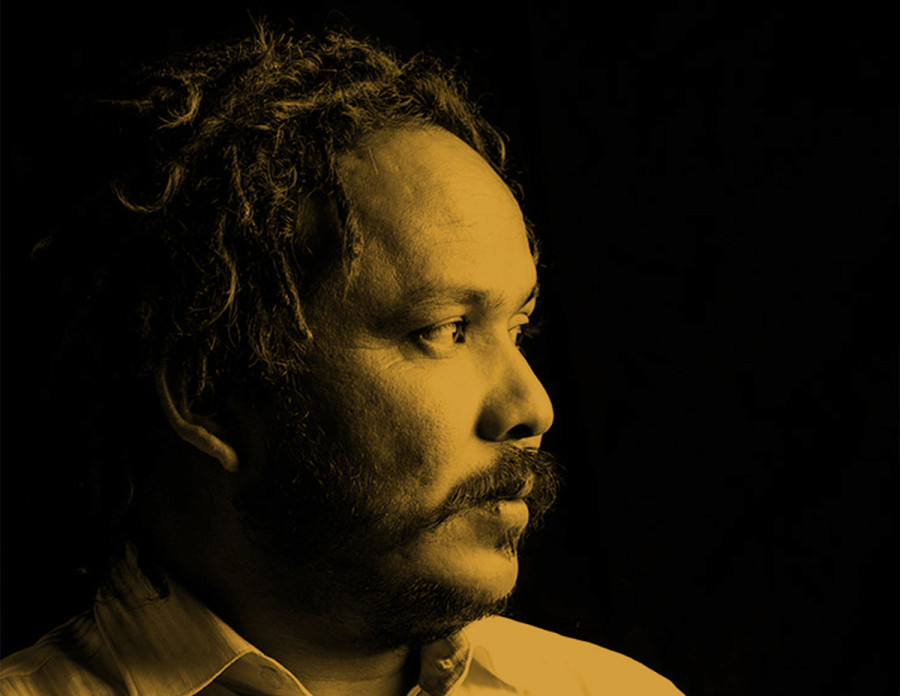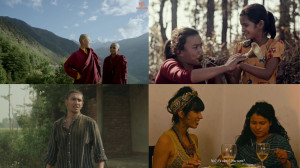Movies
Min Bahadur Bham: Our film industry lacks creative producers who can invest more than money
The award-winning filmmaker on his love for the art of cinema and the current scenario of the Nepali movie industry.
Ankit Khadgi
In the year 2015, everything changed for filmmaker Min Bahadur Bham after the release of his first feature movie, Kalo Pothi. From becoming the first Nepali filmmaker to bagging the best movie award at the Critics Week of Venice International Film Festival to even receiving love from Nepali audience for his movie, Bham achieved what every filmmaker aspires to with his first movie.
Currently, he is working on his upcoming project A Year of Cold for which he received funds as the winner of the Norwegian Sorfond Award at last year’s Cannes Film Festival. The Post’s Ankit Khadgi sat with the award-winning filmmaker to talk about his filmmaking journey, his passion for story-telling and his views regarding the current situation of the Nepali movie industry. Excerpts:
How did you end up becoming a filmmaker?
My love for movies started young. When I was a child, my father had a small cinema theatre in Mugu where he’d screen Hindi movies. I liked watching movies rather than spending my time playing with toys. My friends aspired to become the hero, but I always wanted to become the one who used to direct the heroes.
I understood the power of words when I was young too. The village I grew up in was a close-knit, remote community, and people who left the village for work outside often wrote telegraphs to people back home. I was one of the few who could read, and I would read all the telegraphs that came. These telegraphs were expensive back then, and keeping that in mind, people sent short, strong notes back home. I used to be stunned by how you don’t need too many words to convey what you feel. This made me realise the power of such form of communication. My passion for movies increased. I realised how through just a few hours one could connect people with something deep. I was also into writing poems and loved reading books that enhanced my love for story-telling.
Eventually I ran away from home after my SLC and came to Kathmandu, where I joined theatre. But my end goal was always the big screen and with many struggles and hard work, I achieved what I wanted in my life—to make movies.
How do you decide on your storyline for your movies?
Kalo Pothi’s story was somehow a reflection of my personal experiences. Back in my village, when I was young, I had a friend with whom I shared a close bond with. He was from a lower caste, and our friendship had some terms and conditions forced by our social structure. He was not allowed to enter my house. These things had a deep impact on me and I weaved the film’s storyline with this issue along with the then political situation. I like to tell stories of people I know on an intimate level, real life experiences, and the political situation of our country.
What’s your method of working like?
I need to have a clear narrative for my story, the structure can change. Scriptwriting is a lengthy and lonely process, and I usually go to secluded places to write. I also try to visit the place where the story is based on. The research process is a long process too, because whenever I come across some new information or detail, I rewrite and make changes in the story and in the script itself.
Since you are an independent filmmaker, what are the challenges you have to face?
Independent filmmakers from all over the world have to overcome many challenges. If we speak in terms of our country, we lack government support in terms of subsidies. The private investors also lack a comprehensive understanding of cinema due to which it’s difficult to find creative producers who are fully involved in the process, besides backing the movie financially. There’s also a hurdle in getting an audience as well as releasing your movie in theatres. Sometimes, it’s also difficult to convince the actors and the rest of the crew to have faith in your idea.
How did you feel when you became the first-ever Nepali filmmaker whose feature film was screened at the Venice Film Festival?
To be honest, I was neither excited nor nervous. Back in 2012, my short movie The Fruit (Bansulli) had also been screened at the same festival. For me, the most important thing is the process of making my movies. Other things are secondary. I really enjoyed making ‘Kalo Pothi’. I could see my growth as a human being after making it. However I had an emotional attachment to it as I received support in terms of money from my family and friends. I felt happy for them, as they supported my vision which was receiving such a big appreciation and platform.
Many said that Kalo Pothi had a perfect balance because both critics and masses loved the movie. How do you think the perfect balance in one’s storytelling can be achieved where you can impress both critics and masses?
I didn’t make the movie with the intention of telling the story with the right balance. I used the available tools and made a movie about common people which many could connect to. I think that’s the reason why many people loved the movie as they felt the story was real. I was suggested by many to change the language of the movie into Nepali. But I stayed strong headed and followed my vision of telling the story of the ground reality and showed the real culture. I think if you tell stories that reflect reality, many can connect to it. I believe this can be a balanced way of story-telling which people from critics to commoners can relate to. If they can relate, then they will enjoy your movie.
How has film festivals helped you or your craft?
Film festivals are very important as it opens a platform for your work to receive exposure among the masses who appreciate art. I don’t think my movie, ‘Kalo Pothi’ would not have been this big if it wasn't screened at Venice. The screening helped in the movie's promotion among Nepali viewers directly affecting it’s business. When your movie gets a stamp of a film festival it also becomes easy to get distributors and exposure in the global market.
You also worked a larger chunk of your life in theatre? How has it helped you after transitioning into filmmaking?
If I wasn’t involved in theatre, I couldn’t see myself becoming a filmmaker. Theatre made me disciplined and understand the value of art. Generally, in filmmaking you have more choices. It’s like living a lavish life, where options are thrown towards you. However when you are from theatre, you have to always look for multiple or alternative options.
Because of my theatre experiences, I always look for an artistic approach to tell what I want in my frames and utilise the available resources rather than spend an exorbitant amount of money just for a scene. Similarly, theatre also helped me to polish my team working skills.
Since you are also involved as a producer in your projects, how difficult is it for you to balance both roles of director and a producer?
The main reason why my next project is getting delayed is because I am both the producer and director of the movie. It’s difficult for me to take my time out and do both things simultaneously. I have to work on the script, audition the actors along with managing the finances, marketing, aesthetics, and distribution. It becomes so hectic that sometimes there's a possibility of not being able to start the movie at the estimated time.
Many say that Nepali movies are not exploring themes except of migration, civil war and comedy genre? Why do you think filmmakers aren’t taking enough risks when it comes to exploring other genres of storytelling?
Nepali movies have always stuck to a particular theme, when it comes to the genre of storytelling. Before, the makers made movies, which dealt with the suppression of the working class by the ruling class. The lead would be a rebellious proletariat who would fight against 30 goons, who worked for the ruling class, the antagonist of the story.
Now we are also using the similar theme of migration, the effects of civil war, and comedy which somehow also addresses the current social ideology. The makers are using these themes mainly because there hasn’t been a diversion with commonly accepted ideology in the country. People love to see a fantasy world, and they can pay money to watch people driving expensive cars, clothes or living a good life in abroad, which has become a dream for the common people. Producers and directors are just cashing in these aspirations and are making a movie about it.
In your view, what things should be improved in the context of our movie industry?
First of all I think we are following the wrong modality by imitating Bollywood’s system. Since we don’t have a proper movie studio or stars who can guarantee that a movie can earn a certain amount of money, we can't practise their modality.
Also the producers should think beyond finance. It’s the producers who should deeply understand the movies, than the directors so they could find the right approach and resources to tell the story. Our film industry lacks creative producers who can invest more than money. So, it’s necessary to have those who can help the director in executing their vision, by offering help in movie’s aesthetics, marketing, and production along with managing funds. A country’s film industry can only excel if there are good producers who value the art of cinema.
The artists and the makers should also acknowledge the agency they have in shaping the mindset of people too. They should be socially responsible and shouldn’t only think of money. It doesn’t mean that they have to make movies preaching social messages, but they should be conscious of where the narrative and the discourse their movie will lead to among the audience.
The trend of following the repetitive themes of those movies that were successful at the box-office should be stopped. You can see how many movies have followed the same story line after the release of movies like ‘Loot’, ‘Chakka Panja’, ‘Jatra’ and so on. This trend of banking on the previous hit movies should be stopped and makers should explore other themes and contribute to the growth of Nepali cinema.




 9.83°C Kathmandu
9.83°C Kathmandu












